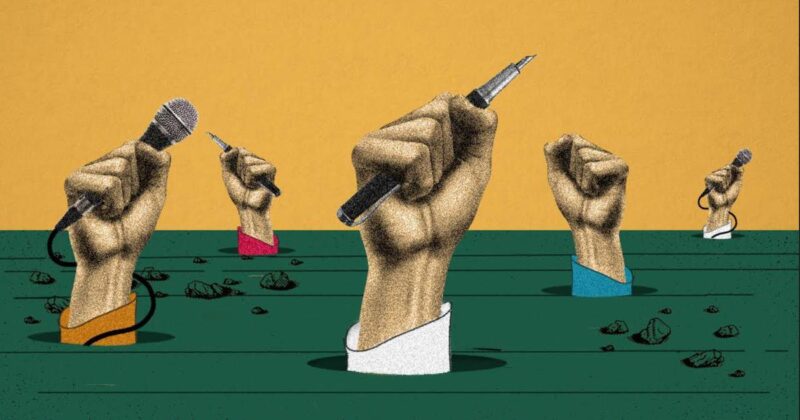

On 6 February 2025, the Journalists’ Union of Macedonia and Thrace announced that its former president Nikolaos Karras had been acquitted of defamation, following a complaint filed by the mayor of Servia,Christos Eleftheriou. The Union declared in its statement that the decision vindicates the principle that attacks against journalists are an attempt to restrict freedom of information.
It should be noted that despite the acquittal in this case, the inadequate protection of journalists, activists and members of civil society from abusive SLAPP lawsuits continues to be a serious problem.
Indeed, the phenomenon of legal attacks against journalists poses a threat to press freedom in Greece, as the country has not yet adopted specific legislation to protect members of civil society, organisations, media and journalists from Strategic Lawsuits Against Public Participation, the so-called SLAPPs, which attempt to silence critics through moral and financial exhaustion.
It should also be noted that Greece has not yet transposed Directive 2024/1069, which provides for measures to deal with abusive SLAPPs.
As detailed in an article published in the legal magazine Nomiki Vibliothiki Daily by Christina Vrettou (PhD in Constitutional Law, Lawyer, Member of the Expert Group against SLAPPs), Directive 2024/1069 entered into force on 6 May 2024 and Member States have two years to incorporate it into their national legislation, which means that the Greek government should have adopted it by 7 May 2026.
The European Directive aims to protect persons who engage in public participation from manifestly unfounded claims or abusive court proceedings (‘Strategic lawsuits against public participation’) “the purpose of this Directive is to eliminate obstacles to the proper functioning of civil proceedings, while providing protection for natural and legal persons who engage in public participation on matters of public interest, including journalists, publishers, media organisations, whistleblowers and human rights defenders, as well as civil society organisations, NGOs, trade unions, artists, researchers and academics, against court proceedings initiated against them to deter them from public participation.”
The Directive goes on to specify that, “Journalists play an important role in facilitating public debate and in the imparting and reception of information, opinions and ideas. They should be able to conduct their activities effectively and without fear in order to ensure that citizens have access to a plurality of views in European democracies. Independent, professional and responsible journalism, as well as access to pluralistic information, are key pillars of democracy. It is essential that journalists are afforded the necessary space to contribute to an open, free and fair debate and to counter disinformation, information manipulation and interference, in accordance with the ethics of journalism, and are afforded protection when acting in good faith.”
The failure to adopt an effective legal framework to address SLAPPs effectively leaves the media, journalists and civil society unprotected from abusive legal attacks by powerful political figures and large multinational corporations who have the financial means to engage in protracted legal battles against financially weaker defendants as a tactic to stifle criticism or dissent, a phenomenon that ultimately severely harms the media and journalists protected by Article 14 of the Constitution.
Under the rule of law, individual rights are protected, as well as the freedom of the press. Journalists have the right to freely and independently exercise their profession, free from censorship and influence.
Despite the guarantee of the freedom of the press by Article 14 of the Constitution, members of civil society, organisations and journalists remain unprotected from SLAPP lawsuits due to Greece’s anachronistic legislative framework and the failure to adopt rules to specifically deal with the legal phenomenon of SLAPPs, as required by Directive 2024/1069, which has not yet been incorporated into Greek law.
Bank Account number: 1100 0232 0016 560
IBAN: GR56 0140 1100 1100 0232 0016 560
BIC: CRBAGRAA
![]()
In a time where the very foundations of democracy are gradually being eroded by the rise of extreme nationalism, alt-right movements, the spread of disinformation and corporate capture, the efforts of organisations such as Vouliwatch are more relevant than ever.
We rely on the generosity of each and every one of you to continue with our efforts for more transparency and accounta
By financially supporting Vouliwatch you support our litigation strategy, our campaigns for transparency and accountability in the political system, the development of new civic tech tools, our research projects and last but not least our impartial and accurate